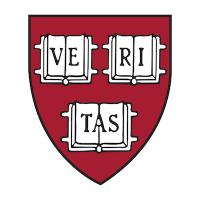What do they do?
Facilitate negotiation and conflict resolution through dialogue. Resolve conflicts outside of the court system by mutual consent of parties involved.
Also known as:
Alternative Dispute Resolution Coordinator (ADR Coordinator), Alternative Dispute Resolution Mediator (ADR Mediator), Arbiter, Arbitrator, Community Relations Representative (Community Relations Rep), Divorce Mediator, Family Mediator, Federal Mediator, Labor Arbitrator, Labor Mediator, Mediation Commissioner, Mediator, Public Employment Mediator
-
0%
Change
Ranks #44 in job growth rate10Job Openings
Ranks #19 in net job growth
Looking for colleges that offer a specific major? Use the College Match Tool to find your best-matched schools and discover your estimated Net Price!
- Doctorate or Professional Degree (87%)
- Bachelor's degree (6%)
- Master's degree (4%)
- Some college, no degree (1%)
- High school diploma equivalent (1%)
- Associate's degree (<1%)
- Less than high school diploma (<1%)
Most Popular Majors that prepare Arbitrators, Mediators, and Conciliators
-
#1
-
Degrees Granted
35,637
-
Female Students
19,616
-
Male Students
16,021
-
Median Starting Salary
$37,700
-
-
#2
-
Degrees Granted
850
-
Female Students
571
-
Male Students
279
-
Median Starting Salary
$47,533
-
-
#3
-
Degrees Granted
482
-
Female Students
328
-
Male Students
154
-
Median Starting Salary
$47,533
-
People in this career often have these skills:
- Negotiation - Bringing others together and trying to reconcile differences.
- Active Listening - Giving full attention to what other people are saying, taking time to understand the points being made, asking questions as appropriate, and not interrupting at inappropriate times.
- Writing - Communicating effectively in writing as appropriate for the needs of the audience.
- Reading Comprehension - Understanding written sentences and paragraphs in work-related documents.
- Speaking - Talking to others to convey information effectively.
- Critical Thinking - Using logic and reasoning to identify the strengths and weaknesses of alternative solutions, conclusions, or approaches to problems.
- Active Learning - Understanding the implications of new information for both current and future problem-solving and decision-making.
- Social Perceptiveness - Being aware of others' reactions and understanding why they react as they do.
- Persuasion - Persuading others to change their minds or behavior.
- Complex Problem Solving - Identifying complex problems and reviewing related information to develop and evaluate options and implement solutions.
- Judgment and Decision Making - Considering the relative costs and benefits of potential actions to choose the most appropriate one.
People in this career often know a lot about:
- English Language - Knowledge of the structure and content of the English language including the meaning and spelling of words, and rules of composition and grammar.
- Law and Government - Knowledge of laws, legal codes, court procedures, precedents, government regulations, executive orders, agency rules, and the democratic political process.
- Personnel and Human Resources - Knowledge of principles and procedures for personnel recruitment, selection, training, compensation and benefits, labor relations and negotiation, and personnel information systems.
People in this career often have talent in:
- Written Comprehension - The ability to read and understand information and ideas presented in writing.
- Written Expression - The ability to communicate information and ideas in writing so others will understand.
- Oral Comprehension - The ability to listen to and understand information and ideas presented through spoken words and sentences.
- Oral Expression - The ability to communicate information and ideas in speaking so others will understand.
- Deductive Reasoning - The ability to apply general rules to specific problems to produce answers that make sense.
- Inductive Reasoning - The ability to combine pieces of information to form general rules or conclusions (includes finding a relationship among seemingly unrelated events).
- Speech Clarity - The ability to speak clearly so others can understand you.
- Problem Sensitivity - The ability to tell when something is wrong or is likely to go wrong. It does not involve solving the problem, only recognizing that there is a problem.
- Speech Recognition - The ability to identify and understand the speech of another person.
- Near Vision - The ability to see details at close range (within a few feet of the observer).
People in this career often do these activities:
- Prepare written decisions for legal proceedings.
- Identify implications for cases from legal precedents or other legal information.
- Make decisions in legal cases.
- Conduct hearings to investigate legal issues.
- Rule on admissibility of legal proceedings.
- Meet with individuals involved in legal processes to provide information and clarify issues.
- Arbitrate disputes between parties to resolve legal conflicts.
- Evaluate information related to legal matters in public or personal records.
- Research relevant legal materials to aid decision making.
- Prepare legal documents.
- Administer oaths to court participants.
- Coordinate legal schedules or activities.
- Interview claimants to get information related to legal proceedings.
- Provide legal advice to clients.
- Authorize payments to settle legal disputes.
- Present social services program information to the public.
- Represent the interests of clients in legal proceedings.
This page includes data from:

 Occupation statistics: USDOL U.S. Bureau of Labor Statistics Occupational Employment Statistics
Occupation statistics: USDOL U.S. Bureau of Labor Statistics Occupational Employment Statistics
 Videos: CareerOneStop, USDOL/ETA and the Minnesota Department of Employment & Economic Development
Videos: CareerOneStop, USDOL/ETA and the Minnesota Department of Employment & Economic Development





























